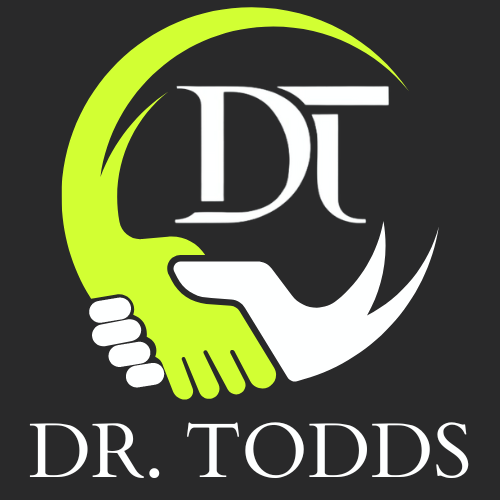
The logistics industry has changed dramatically in recent years, thanks to the advent of 3rd party logistics providers. In many ways, they serve as a middleman between major manufacturers, retailers, and their customers. The many benefits of this are apparent: goods are delivered more quickly and efficiently, with less damage and fewer errors.
What is a 3rd Party Logistics Provider?
A third-party logistics provider (3PL) is a company that provides outsourced logistics services to other companies. 3PLs manage the entire supply chain for their clients, from manufacturing and warehousing to transportation and distribution. 3PLs have become increasingly popular in recent years as companies look to streamline their operations and focus on their core competencies. Many 3PLs operate large warehouses specifically designed to store inventory for multiple clients simultaneously. By partnering with a dedicated facility, similar to this UK based warehouse for 3PL services, companies can entrust their inventory storage, order fulfillment, and distribution to these providers, enabling them to concentrate on their primary business functions.
There are many types of 3PLs, each with its strengths and weaknesses. The key is to find a 3PL that best fits the company’s needs.
The Growing Popularity of 3PLs
The growing popularity of 3PLs can be attributed to several factors:
- Outsourcing logistics allows businesses to focus on their core competencies and leave logistics management to experts. This can result in increased efficiency and cost savings.
- 3PLs have access to a vast network of resources and service providers, which they can utilize to tailor solutions that meet the specific needs of their clients.
- 3PLs can usually provide a higher level of service than businesses could achieve on their own due to their experience and expertise.
- Using 3PLs allows businesses to be flexible and respond quickly to changes in the marketplace.
How 3PLs Help Businesses
Third-party logistics providers offer businesses the opportunity to outsource their logistics needs, which in turn can free up valuable time and resources while providing employees with increased prospects for career growth. These providers offer a wide range of services that can greatly benefit businesses and their workforce. Among these services are transportation management, warehousing and distribution, inventory management, and order fulfillment. By entrusting these logistics functions to a 3PL (you can check out shapefulfilment.com for better clarity), businesses can focus on their core competencies and rely on the expertise of industry specialists.
One of the significant advantages of partnering with a third-party logistics provider is the potential for cost savings. Thanks to their economies of scale, 3PLs can often offer their clients reduced expenses. Moreover, these providers are continually striving to enhance efficiency and drive down costs, resulting in potential savings for businesses and employees by reducing the need for overtime or additional staffing. Additionally, 3PLs can assist businesses in maintaining compliance with government regulations. They stay well-informed about the latest rules and regulations governing the transportation of goods, thereby helping companies avoid costly fines and penalties.
The benefits of engaging a 3PL are multifaceted. Businesses can enjoy time and cost savings, while their employees are provided with greater opportunities for professional development, and overhead costs are effectively managed.
How to Choose the Right 3PL Provider
As the eCommerce industry grows, logistics becomes an increasingly important part of a business’s success. Third-party logistics providers can take on many shipping and fulfillment responsibilities that would otherwise fall to the company. This makes it possible to free up time and resources that could be better spent elsewhere.
Choosing the right third-party logistics (3PL) partner is crucial for any growing business that ships products, especially in industries like healthcare, beauty, and wellness. As these companies scale up, fulfillment and shipping operations can become costly and complex. Turning over these functions to a 3PL with expertise in warehousing, order processing, and delivery allows brands to focus on product development, marketing, and customer service.
When evaluating 3PLs, beauty and wellness businesses should look for providers experienced in handling and shipping fragile, personalized, perishable, or regulated items. For example, meal delivery services and supplements require temperature-controlled environments, while cosmetics and skincare necessitate delicate handling and legally-mandated labelling. An experienced 3PL partner understands the unique requirements of each industry and customizes solutions accordingly.
Specialization also applies for natural health products. From vitamins and supplements to herbal remedies and homeopathic offerings, these items have specific warehousing, picking, packing, and shipping needs around maintaining product integrity and freshness. As with any 3PL choice, natural health businesses should thoroughly research potential partners, request quotes, check references, and ask questions before selecting one. This due diligence ensures a 3PL match that meets operational requirements, customer expectations, and the brand’s budget. With an experienced and specialized partner providing 3PL Fulfillment for Natural Health Products Canada or anywhere nearby, brands can rest easy knowing their products will safely and efficiently reach customers.
Challenges Faced by 3PLs
The logistics industry is constantly evolving, posing challenges for third-party logistics providers (3PLs). One of the biggest challenges faced by 3PLs is keeping up with the latest trends and technologies. This can be a challenge because the logistics industry is very complex, and there are always new developments. Customers often have unrealistic expectations regarding shipping times and delivery deadlines. 3PLs must manage these expectations and ensure they are realistic. Finally, another challenge faced by 3PLs is risk and liability. Managing risk is critical in the logistics industry, as the transportation of goods carries inherent hazards like accidents, theft, and damage. To protect against these risks, wise 3PLs partner with Specialist Truck Insurance Broker and secure adequate coverage for their operations and the goods they transport. However, even with insurance, 3PLs can still face substantial liability if accidents or losses occur. They must implement strong safety protocols and loss prevention measures to minimize hazards. 3PLs also face compliance risks if their drivers or facilities fail to adhere to regulations around safety, labor, or hazardous materials. Staying current on evolving regulations across multiple jurisdictions is an ongoing challenge. Ultimately, managing risk requires 3PLs to balance cost, liability exposure, and service quality when developing their logistics networks and policies. With careful planning and loss control procedures, 3PLs can contain risks while still providing efficient transportation services to their clients.
Growing Businesses with 3rd Party Logistics Providers
Third-party logistics providers are changing the game in the logistics industry by providing more efficient and cost-effective services. This benefits both businesses and consumers alike, as companies can reduce their overhead costs, and consumers can get their goods delivered faster and at a lower price. With the rise of e-commerce, we will likely see even more growth in the third-party logistics industry in the years to come.



